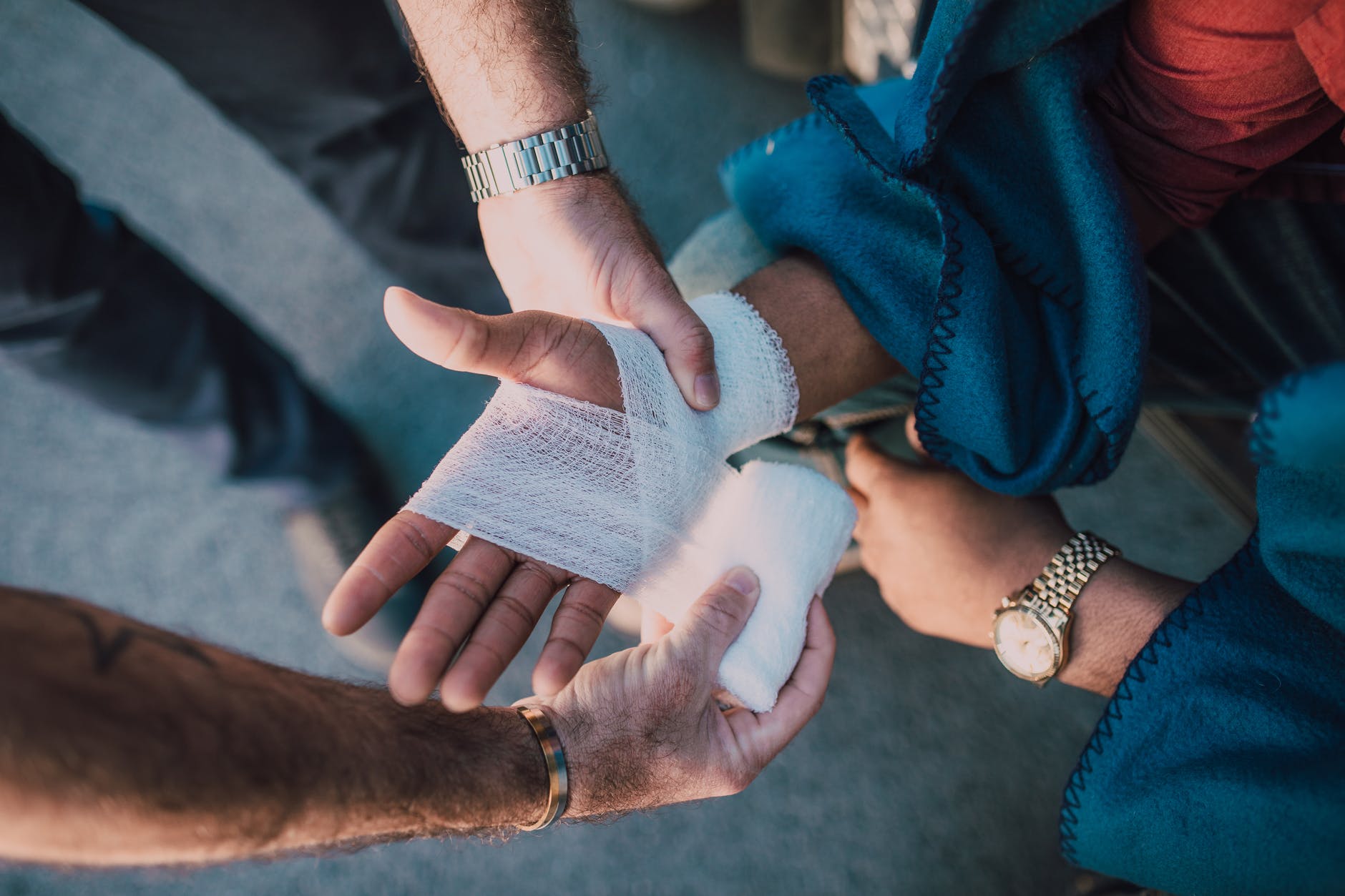If you contract COVID-19 at work, are you covered by workers’ comp?

A few minutes every morning is all you need.
Stay up to date on the world's Headlines and Human Stories. It's fun, it's factual, it's fluff-free.
Even though roughly half of the United States population has been fully vaccinated against the 2019 coronavirus, the pandemic is ongoing. That means with many employees returning to the workplace, there is still a risk of contracting COVID-19 on the job, even for vaccinated workers.
So, does workers’ comp cover COVID? All 50 states have workers’ compensation laws to protect Americans who are injured at work, but do state workers’ compensation programs cover those who contracted COVID-19 at work? We’ll address COVID workers’ compensation as well as the related question of if workers’ comp covers pain and suffering related to contracting COVID-19.
COVID-19 and the workplace

An indisputable fact about COVID-19 is that it has changed how, and in particular where, people work in America. The coronavirus pandemic has shuttered many offices, factories and other workspaces across the country.
Some companies like Apple and Google have embraced remote-working arrangements and adopted a “hybrid model” to let employees split work between home and the office. Other large corporations, including JPMorgan Chase & Co., are adamant that most of their workers should return to the office and are focusing their attention on reopening plans.
A return to the workplace is inevitable for hundreds of thousands of US workers. Many of them are essential workers or employed in industries where the risk of COVID-19 transmission is heightened. Some have asked whether workers’ compensation laws will protect them if they are among those that contracted COVID-19 at work.
An overview of workers’ compensation laws

Workers’ compensation, commonly referred to as “workers’ comp,” is a system that compensates employees for workplace injuries or illnesses. Workers’ compensation claims relate to injuries or illnesses that occur while performing job duties or as a direct result of employment.
Workers’ compensation provides payments and other benefits to employees whose injuries or illnesses arose out of their employment. Typically, compensation is awarded to cover medical costs and lost wages. In some cases, survivors may receive benefits if the injury or illness resulted in the worker’s death.
Under workers’ compensation, there is no need to prove negligence on the part of the employer. Also, a worker’s own negligence in causing the injury won’t disqualify the employee from benefits. The key to a successful claim is whether the person was performing work-related duties when the injury or illness happened.
The system of workers’ compensation was developed as a compromise between employers and employees. Under the system, employees benefit because they don’t have to prove that the employer was negligent to get compensated for an on-the-job injury.
Employers benefit by limiting their liability for workplace accidents because employees can only recover a certain amount and are barred from suing their employers under regular tort law.
Each state has its own workers’ compensation laws that determine how claims are made and resolved. The Federal Employees’ Compensation Act (FECA) governs workplace injury claims for people who work for the US government.
COVID-19 and workers’ compensation

So, what if you contracted COVID-19 at work? Traditionally, workers’ compensation did not extend to common community-spread illnesses like colds or the flu because those types of illnesses are hard to link to the workplace. The coronavirus pandemic, however, has changed the way that many states are handling workers’ compensation claims.
That’s because many job sectors that previously were not considered hazardous, like health care, mass transit and teaching, are now known to present dangerous conditions for employees in those and other “essential worker” industries. Healthcare workers are especially worried about workplace infections because what they do requires them to be in close contact with infected patients.
But does being an essential worker at a higher risk of a workplace infection guarantee that a COVID-19 illness would be covered under workers’ compensation? The answer depends on the workers’ compensation laws of each state as well as the facts and circumstances of each particular claim.
Do state workers’ compensation laws cover COVID-19?
In total, 17 states and Puerto Rico have amended their workers’ compensation statutes to include COVID-19 as a work-related illness. Nine states have enacted legislation to create a presumption of coverage for certain types of workers such as first responders and healthcare workers.
This presumption makes it easier for workers to file successful claims by placing the burden on the employer and insurer to prove that contraction of the coronavirus infection was not work-related. So, if you contracted COVID-19 at work, it may be worth pursuing workers’ compensation.
Do federal workers’ compensation laws cover COVID-19?
For federal workers, the American Rescue Plan Act makes it easier for federal workers diagnosed with COVID-19 to establish coverage under the Federal Employees’ Compensation Act.
The act provides that a federal employee who is diagnosed with COVID-19 and carried out duties that required contact with patients, members of the public or co-workers, or included a risk of exposure to COVID-19, is determined to have an injury whose cause is employment.
Workers’ compensation benefits

Workers’ compensation benefits can be divided into two categories: medical benefits and indemnity benefits.
Medical benefits are paid to cover the worker’s medical costs required to treat the injury or illness, or to relieve the effects of a permanent injury or illness if it is incurable. Indemnity benefits provide compensation for a portion of the worker’s lost wages, or in some cases lost income earning potential.
Is “pain and suffering” a type of injury?
Pain and suffering is a legal term that refers to the physical discomfort and emotional distress that accompany an injury. It includes pain, discomfort, anguish, inconvenience and emotional trauma stemming from the injury.
Under certain legal actions, pain and suffering are compensable as noneconomic damages. This special category of money damages is usually available in personal injury actions and other negligence and intentional tort lawsuits. Pain and suffering as a category of damages is designed to compensate people for physical and mental conditions, including depression and embarrassment, associated with the injury.
Does workers’ compensation cover pain and suffering?
Workers’ compensation is limited to lost wages and medical expenses. Under virtually all state workers’ compensation laws, an employee can’t make a claim for pain and suffering.
Typically, the only way to recover money for pain and suffering is through a lawsuit. As discussed earlier, accepting workers’ compensation for injuries almost always will bar an employee’s ability to sue the employer for damages for personal injuries, including pain and suffering.
This article was contributed by Lauren Blair, a lawyer who writes for the legal site, FreeAdvice.com. Lauren has over 25 years of experience in litigation and employment law.
Have a story to share? Get in touch at contributors@themilsource.com




Comments ()